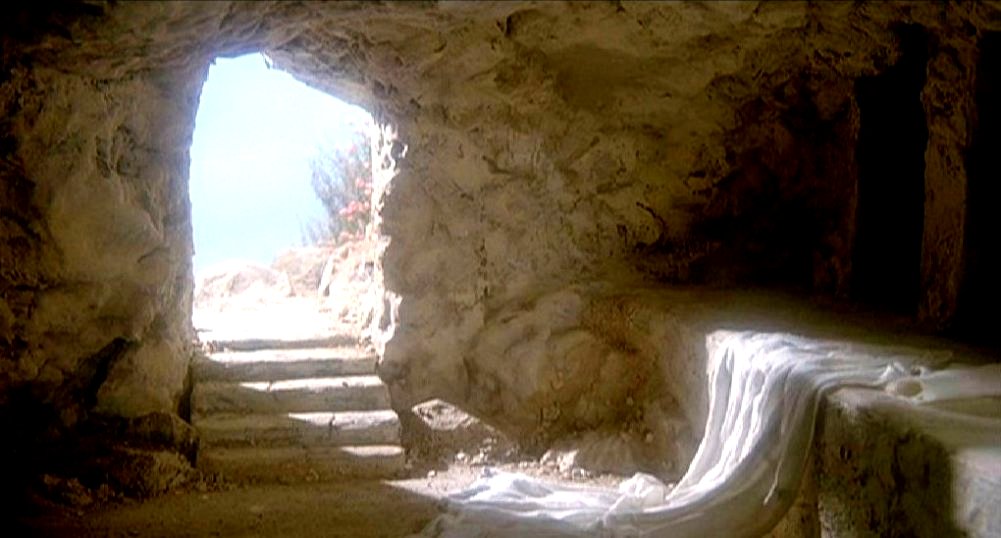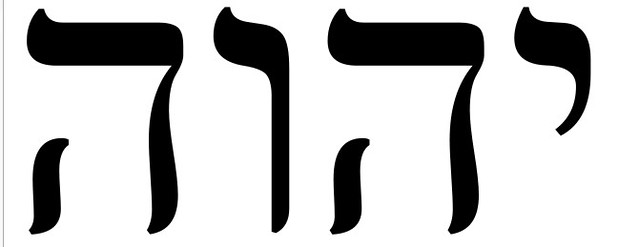...Christ, the King of Kings, enters the Holy city of Jerusalem mounted on a donkey, on the first Palm Sunday

...and so begins HOLY WEEK, the holiest week of the year
The great and ancient service on
Palm Sunday
celebrates the entry of
our Lord and Saviour JESUS CHRIST into the city of Jerusalem, riding on a
donkey with its young colt or foal, signifying the Old and the New
Testaments, to be welcomed by His people as a
king, a priest, a prophet and a saviour and as the very
Messias and
King whom they had been awaiting for centuries but, in a few short days, were to reject.
This entry of the humble Christ into the city was foretold and prophesied by the prophet, Zechariah:
"Rejoice greatly, O Daughter of Zion!
Shout, Daughter of Jerusalem!
See, your king comes to you,
righteous and having salvation,
gentle and riding on a donkey, on a colt, the foal of a donkey.
I will take away the chariots from Ephraim
and the war-horses from Jerusalem,
and the battle bow will be broken.
He will proclaim peace to the nations.
His rule will extend from sea to sea
and from the River to the ends of the earth".
(Zechariah 9:9-10)
Pedro de Orrente. Christ's entry into Jerusalem. c.1620
The
Palm Sunday service is a particularly fine one, albeit lengthy.
In the pre-1955 rite, which is far superior, more Biblical and very ancient, it takes 3 hours.
The palms are blessed with many hymns, psalms, chants and prayers, and the people receive them, the choir singing
Pueri Hebraeorum, portantes ramos olivarum
(the children of Israel carrying olive branches), and there is a
short-form mass at the altar.
The antiphons recall
Noah and the Flood and
Moses leading the children of Israel out of Egypt to the Promised Land.
After this comes the
Procession out of the
Church, singing psalms, and then back to the front portal of the Church
where we sing
Gloria, laus et honor, tibi sit, Rex Christe Redemptor - "Glory, praise and honour be to thee, King Christ Redeemer!".
At the door,
two cantors have entered and the doors are shut. They sing in response to the
Gloria laus
and then
the Subdeacon, outside, knocks on the door with the end of the
processional cross. The doors open, to signify the
entrance of Christ
into Jerusalem and our entry into Heaven, and the procession moves back
into the church, singing an ancient chant,
Ingrediente Domino - "Going in to the Lord..."
Then the principal mass begins with many haunting and beautiful chants being sung, and then the
Passion according to St Matthew in long form is sung, starting at the anointing of the feet of
Jesus by
St Mary Magdalene in the house of
Simon the Leper.
This is a fitting way to recall the beginning of
the Passion when our Lord was welcomed as a king and prophet into the
holy city of Jerusalem by His people who, only days later, were to betray Him unto their Roman enemies to torture and death.
Soon many of those same Romans were to be converted whilst many of God's chosen rejected the very
Messias whom they had been awaiting for so long.
In
former times, the celebrating priest would, for the procession,
sit
upon a donkey to which is attached its colt, as our Lord Himself so sat
on the original
Palm Sunday.
It is a remarkable fact
that
every donkey, of the sort upon which our Lord rode, has, by nature,
marked upon its back, a
black cross to signify the fact that, one day,
the Creator of heaven and earth would sit upon the back of this same
animal for His entry into the
Holy City of Jerusalem, but one week before he would be led, in that came city, to death upon the Cross.
 The
black cross is clearly visible upon the back of every donkey so that
nature itself testifies to the role the donkey would play in carrying
the Creator of heaven and earth into the Holy City of Jerusalem on Palm
Sunday.
The
black cross is clearly visible upon the back of every donkey so that
nature itself testifies to the role the donkey would play in carrying
the Creator of heaven and earth into the Holy City of Jerusalem on Palm
Sunday.
In former times, too, the Roman Emperor would lead the Patriarch of Jerusalem
on a donkey up to the church door as part of the ceremonies and as a
gesture of humility on his part. Sadly, the tradition later died out.
This tradition was continued by the Russian Tsars,
also, until the custom was suppressed by the modernising, "enlightened"
and very brutal dictator, Tsar Peter I, just as so much has been
throughtlessly suppressed in our own liturgy in the Latin West.
It is a fitting imitation of the humility of JESUS CHRIST for the chief spiritual ruler to ride upon a donkey on this day, led
by the chief temporal ruler.
Chesterton's poem captures the spirit
admirably.
The Donkey
by G.K.Chesterton
When fishes flew and forests walked
And figs grew upon thorn,
Some moment when the moon was blood
Then surely I was born.
With monstrous head and sickening cry
And ears like errant wings,
The devil's walking parody
On all four-footed things.
The tattered outlaw of the earth,
Of ancient crooked will;
Starve, scourge, deride me: I am dumb,
I keep my secret still.
Fools! For I also had my hour;
One far fierce hour and sweet:
There was a shout about my ears,
And palms before my feet.
How
admirable, too, for God Himself to have chosen to be received into the
Holy City mounted upon a donkey, a stubborn, ill-featured, irrational
creature, so like man when in sin, but one marked from the beginning of
time to bear the Saviour Himself in solemn procession before the very
sinners whom God has chosen to redeem with His own blood.
Here is a recording of the antiphon
Pueri Hebraeorum,
psalms and chants sung during the procession of the cross and palms
(and, traditionally, with the priest sitting upon a donkey).
Ant. Pueri Hebraeorum, portantes ramos olivarum, obviaverunt Domino, clamantes, et dicentes: Hosanna in excelsis.
Ant. The Hebrew children bearing olive branches, went forth to meet the Lord, crying out, and saying, Hosanna in the highest.
Psalm 23 (24)
Domini est terra, et plenitudo eius, * orbis terrarum et universi qui habitant in eo.
Quia ipse super maria fundavit eum, * et super flumina praeparavit eum.
[Repeat Antiphon]
Attolite portas, principes vestras: † et elevamini, portae aeternales: * et introibit rex gloriae.
Quis est iste rex gloriae? † Dominus fortis et potens: * Dominus potens in praelio
[Repeat Antiphon]
Attolite portas, principes vestras: † et elevamini, portae aeternales: * et introibit rex gloriae.
Quis est iste rex gloriae? * Dominus virtutum ipse est rex gloriae.
[Repeat Antiphon]
Gloria Patri et Filio et Spiritui Sancto. Sicut erat in principio et nunc et semper, et in saecula saeculorum. Amen.
Domini est terra et quae replent eam, * orbis terrarum et qui habitant in eo.
Nam ipse super maria fundavit eum, * et super flumina firmavit eum.
[Repeat Antiphon]
Attolite, portae, capita vestra, et attolite vos, fores antiquae, * ut ingrediatur rex gloriae!
Quis est iste rex gloriae? * Dominus fortis et potens, Dominus potens in praelio.
[Repeat Antiphon]
Attolite, portae, capita vestra, et attolite vos, fores antiquae, * ut ingrediatur rex gloriae!
Quis est iste rex gloriae? * Dominus exercituum: ipse est rex gloriae.
[Repeat Antiphon]
Gloria Patri et Filio et Spiritui Sancto. Sicut erat in principio et nunc et semper, et in saecula saeculorum. Amen.
The earth is the Lord’s and the fullness thereof: the world and all they that dwell therein.
For He hath founded it upon the seas: and hath prepared it upon the rivers.
The children of the Hebrews bearing olive branches, went forth to meet the Lord, crying out and saying, Hosanna in the highest.
Lift up your gates, O ye princes, and be ye lifted up, O eternal gates: and the King of Glory shall enter in.
Who is this King of Glory? The Lord who is strong and mighty: the Lord mighty in battle.
The children of the Hebrews bearing olive branches, went forth to meet the Lord, crying out and saying, Hosanna in the highest.
Lift up your gates, O ye princes, and be ye lifted up, O eternal gates: and the King of Glory shall enter in.
Who is this King of Glory? The Lord of hosts, he is the King of Glory.
The children of the Hebrews bearing olive branches, went forth to meet the Lord, crying out and saying, Hosanna in the highest.
Glory
be to the Father, and to the Son, and to the Holy Ghost. As it was in
the beginning, is now, and ever shall be, world without end. Amen.
Ant. Pueri Hebraeorum, portantes ramos olivarum, obviaverunt Domino, clamantes, et dicentes: Hosanna in excelsis.
Ant. The children of the Hebrews bearing olive branches, went forth to meet the Lord, crying out, and saying, Hosanna in the highest.
+++

















.jpg)

















_-002.jpg/220px-Circle_of_Anton_Raphael_Mengs,_Henry_Benedict_Maria_Clement_Stuart,_Cardinal_York_(ca_1750)_-002.jpg)

